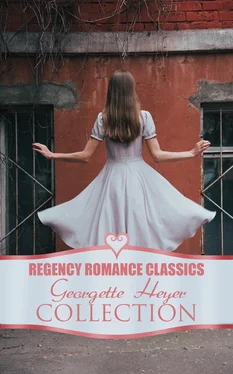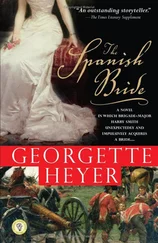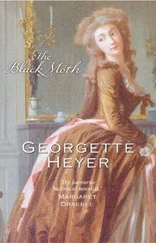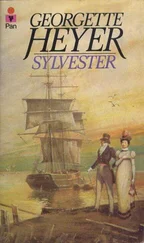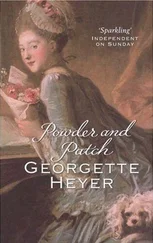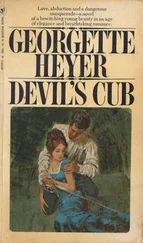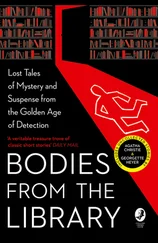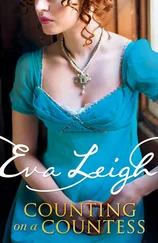1 ...6 7 8 10 11 12 ...37 "A word with you, sir."
Bancroft turned, brows raised, lips curled almost sneeringly.
Philip stood very straight, shoulders squared.
"You have seen fit to mock at me, sir—"
"I?" interpolated Bancroft languidly. "My dear sir!"
"—and I resent it. There is that in your manner to which I object."
Bancroft's brows rose higher.
"To—which—you—object...." he echoed softly.
"I trust I make myself clear?" snapped Philip.
Bancroft raised his eyeglass. Through it he studied Philip from his toes to his head.
"Is it possible that you want satisfaction?" he drawled.
"More than that," retorted Philip. "It is certain."
Once again he was scrutinised. Mr. Bancroft's smile grew.
"I do not fight with schoolboys," he said.
The colour flooded Philip's face.
"Perhaps because you are afraid," he said quickly, guarding his temper.
"Perhaps," nodded Bancroft. "Yet I have not the reputation of a coward."
Swift as a hawk Philip pounced.
"You have, sir, as I well know, the reputation of a libertine!"
It was Bancroft's turn to flush.
"I—beg—your—pardon?"
"It is necessary," bowed Philip, enjoying himself now for the first time in many days.
"You—impudent boy!" gasped Bancroft.
"I would sooner be that, sir, than an impudent, painted puppy."
Under his powder Bancroft was fiery red.
"I see you will have it, Mr. Jettan. I will meet you when and where you will."
Philip patted his sword-hilt, and Bancroft observed for the first time that he was wearing a sword.
"I have noticed, Mr. Bancroft, that you habitually don your sword. So I took the precaution of wearing mine. 'When' is now, and 'where' is yonder!" He pointed above the hedge that encircled the garden to the copse beyond. It was a very fine theatrical effect, and he was pleased with it.
Bancroft sneered at him.
"A trifle countrified, Mr. Jettan. Do you propose to dispense with such needless formalities as seconds?"
"I think we can trust each other," said Philip grandly.
"Then pray lead the way," bowed Bancroft.
What followed was not so fine. Bancroft was proficient in the art of the duello; Philip had never fought in his life. Fencing had never interested him, and Sir Maurice had long since despaired of teaching him anything more than the rudiments. However, he was very angry and very reckless, while Bancroft thought to play with him. He thrust so wildly and so insanely that Bancroft was taken unawares and received a fine slash across the arm. After that he fenced more carefully, and in a very short time pinked Philip neatly and artistically above the elbow of his sword arm. As Philip's blade wavered and fell, he wiped his own on his handkerchief, sheathed it, and bowed.
"Let this be a lesson to you, sir," he said, and walked away before Philip could pick up his sword.
Twenty minutes later Philip walked into the hall of Sharley House, a handkerchief tied tightly round his arm, and asked for Mistress Cleone. On being told that she was in the parlour, he stalked in upon her.
Cleone's eyes flew to his crooked arm.
"Oh!" she cried, and half rose. "What—what have you done? You are hurt!"
"It is less than nothing, I thank you," replied Philip. "I want you to answer me plainly, Cleone. What is that fellow to you?"
Cleone sat down again. Her eyes flashed; Philip was nearer than ever to his downfall.
"I entirely fail to understand you, sir," she answered.
"Do you love that—that prancing ninny?" asked Philip.
"I consider such a question an—an impertinence!" cried Cleone. "What right have you to ask me such a thing?"
Philip's brows met across the bridge of his nose.
"You do love him?"
"No, I don't! I mean—Oh, how dare you?"
Philip came closer. The frown faded.
"Cleone—do you—could you—love me?"
Cleone was silent.
Closer still came Philip, and spoke rather huskily.
"Will you—marry me, Cleone?"
Still silence, but the blue eyes were downcast.
"Cleone," blundered Philip, "you—don't want a—mincing, powdered—beau."
"I do not want a—a—raw—country-bumpkin," she said cruelly.
Philip drew himself up.
"That is what you think me, Cleone?"
Something in his voice brought tears to her eyes.
"I—no—I—oh, Philip, I could not marry you as you are!"
"No?" Philip spoke very evenly. "But if I became—your ideal—you could marry me?"
"I—oh, you should not—ask such questions!"
"As I am—you'll none of me. You do not want—an honest man's love. You want the pretty compliments of a doll. If I will learn to be—a doll—you'll wed me. Well, I will learn. You shall not be—annoyed—by an honest man's love—any longer. I will go to London—and one day I'll return. Farewell, Cleone."
"Oh—goodness—are you—going to town?" she gasped.
"Since that is your desire, yes," he answered.
She held out her hand, and when he kissed it her fingers clung for an instant.
"Come back to me, Philip," she whispered.
He bowed, still holding her hand, and then, without a word, released it, and marched out, very dignified. It was another fine tragic effect, but Cleone, when the door closed behind him, broke into an hysterical laugh. She was rather amazed, and a little apprehensive.
Five
In Which Philip Finds That His Uncle Is More Sympathetic Than His Father
Table of Contents
Home went Philip, a prey to conflicting emotions. He was angry with Cleone, and hurt at what he termed her fickleness, but she was very lovely, and still wholly desirable. Never until now had he realised how necessary she was to his happiness. She would not marry him unless he reformed, learned to behave like Bancroft—that was what she meant. She did not love him as he was; she wanted polish, and frills and furbelows. Philip's lips tightened. She should have them—but he was very, very angry. Then he thought of his father, and the anger grew. What right had these two to seek to change him into something that was utterly insincere, trifling, and unmanly? His father would be rejoiced to hear that he was going "to become a gentleman." Even he had no use for Philip as he was. Well, they should have what they wanted—and then perhaps they would be sorry. In a wave of self-pity he considered how dearly he loved these two people. He wanted neither to change, he loved them for what they were; but they.... He felt very sore and ill-used. Something else there was that troubled him. He had set about the task of punishing Mr. Bancroft, and Mr. Bancroft had ended by punishing him. No pleasant thought, that. Bancroft was master not only of words but of swords; he, Philip, was master of neither. He brooded over the question, chafed and irritable. And so came home to Sir Maurice.
He found him seated on the terrace, reading Juvenal. Sir Maurice, glancing up, observed Philip's sling. He said nothing, but his eyes gleamed an instant.
Philip threw himself down upon a bench.
"Well, sir, Bancroft and I have met."
"I thought it would come," nodded his father.
"I'm no match for him. He—pinked me with some ease."
Again Sir Maurice nodded.
"Also"—Philip spoke with difficulty—"Cleone—will have none of me—as I am." He looked across at his father with some bitterness. "As you prophesied, sir, she prefers the attentions of such as Bancroft."
"And so—?"
Philip was silent.
"And so Mr. Jettan withdraws from the lists. Very fine," added Sir Maurice.
"Have I said so, sir?" Philip spoke sharply. "Cleone desires a beau—she shall have one! I have told her that I shall not come to her until I am what—she thinks—is her desire! I will show her and you that I am not the dull-witted bumpkin you think me, fit for nothing better than"—he mimicked his father's tone—"to till the earth! I'll learn to be the painted fop you'd like to see me! Neither you nor she shall be offended longer by the sight of me as I am!"
Читать дальше
